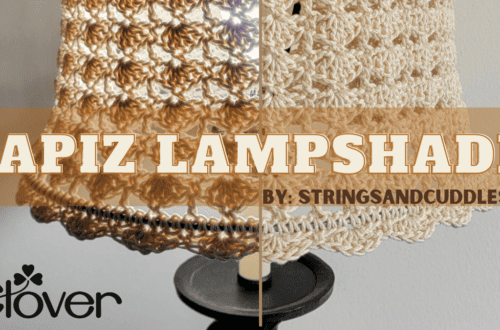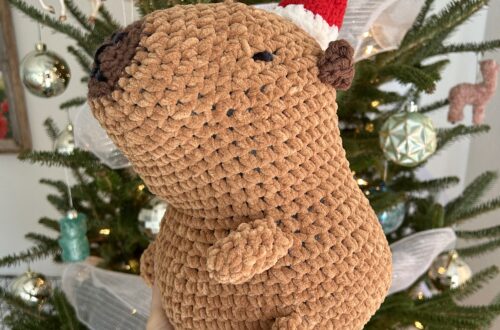Envelope Pillow Cover
Hello friends! I feel like it’s been awhile since I’ve shared a sewing tutorial with you and today I’m so excited about this one! This summer my grand-daughters and I have been sewing some envelope pillow covers for their bedrooms. They are very easy and so fun, and even though there are tutorials all over the internet I just thought a new and fresh tutorial might be in order! So gather your supplies and join me today so that you too can freshen up your living room or bedroom with simple new pillow covers!

Envelope Pillow Cover Tutorial
Before we get started gathering supplies, lets talk about a few things:
1. For the envelope pillow cover method it is best to use a square pillow. You will choose the size of your pillow cover by the size of your square pillow insert. So be sure to have an insert on hand, or purchase one. If you do not know the size of your insert, the best way to measure it is to stretch out one end so that it is flat. Measure that length. That is the size of your insert.

2. The next thing to think about is your fabric choice. You can choose to use all the same fabric. Or you can choose two (or even three) different fabrics. But keep in mind that there is only one front, so choose your front fabric carefully.
3. You can also choose to get creative with the front fabric piece. This is a great way to practice making a large quilt square and using that for the front of your pillow. I had a pile of fall colored half square triangles that I made months ago and didn’t have a use for so I incorporated them in my pillow front. There are so many fun and creative ways to make your pillow front – I encourage you to have fun with it!

4. Every size pillow insert will require different size cuts of fabric. Once you have determined the size of your pillow insert and the fabric you would like to use, then we will determine the necessary fabric amounts. I’ve taken the guess work out of it by creating a handy chart for you. Please refer to this chart in cutting your fabrics!
|
Envelope Pillow Cover Cutting Chart |
||
|
Pillow Size |
Fabric Size for Front |
Fabric Size for Back |
| 12 Inch Square Pillow | 1) 12 Inch Square Fabric Piece | 2) 9 x 12 Inch Fabric Piece |
| 14 Inch Square Pillow | 1) 14 Inch Square Fabric Piece | 2) 11 x 14 Inch Fabric Piece |
| 16 Inch Square Pillow | 1) 16 Inch Square Fabric Piece | 2) 13 x 16 Inch Fabric Piece |
| 18 Inch Square Pillow | 1) 18 Inch Square Fabric Piece | 2) 15 x 18 Inch Fabric Piece |
| 20 Inch Square Pillow | 1) 20 Inch Square Fabric Piece | 2) 17 x 20 Inch Fabric Piece |
| 22 Inch Square Pillow | 1) 22 Inch Square Fabric Piece | 2) 19 x 22 Inch Fabric Piece |
| 24 Inch Square Pillow | 1) 24 Inch Square Fabric Piece | 2) 21 x 24 Inch Fabric Piece |
So now that we have that taken care of, lets get started gathering our supplies!
Necessary Supplies
- Fabric for both front and back pieces
- Pillow form – size of your own choosing
- Fusible Fleece cut the same size as your pillow front piece (*optional step for quilting)
- White thread
- Rotary Cutter
- Wonder Clips or Clover Flower Head Pens
- Bordeaux Ultimate Scissors
- Hera Marker (if you choose to do some machine quilting)
- Hot Ruler
- Iron
Instructions
Step 1: Using a Clover Rotary Cutter – Art No. 7502 and ruler, cut your fabric pieces. Be sure to choose your pillow insert size and then follow the chart above to cut your fabric pieces. If you are going to quilt the front of your pillow, you will also need to cut a piece of Fusible Fleece. Cut it the same size as your Pillow Front Piece.
NOTE: If you are not quilting your pillow front, set your front fabric piece to the side and skip to Step 3.

Step 2: Optional: If you have chosen to use a quilt block for the front of the pillow, you may choose to quilt it. Quilting it is completely optional but this is the time to do it if you have made that choice. Lay your front fabric piece wrong side down on top of the sticky side of the fusible fleece. Press the fabric until it fully adheres to the fusible fleece.

I used the Clover Hera Marker to mark my quilting lines and then I simply sewed a straight stitch along those lines. I love the Hera Marker- Art No. 490 NV because all it does is create a nice crease in the fabric as a line to follow. It doesn’t need to be washed out like a fabric marking pen.

Set your prepared pillow front piece to the side for now.
Step 3: Now we will hem both back pieces. I love using the Clover Hot Ruler- Art No. 7811 for this step; it is the easiest way to get a perfect hem line! What I love the most about the Hot Ruler is that it stays put in place on the fabric and you can iron right on it. Here’s how: lay one of your back fabric pieces on the ironing board, with the wrong side of fabric facing up. Place your hot ruler on of the long raw edges, and move it until it is exactly one inch away from the edge. Keep folding your fabric edge over the ruler until it is one inch. Leave your ruler in place and iron the edge over. Move your ruler over and continue this step until the whole length of the raw edge is ironed down. Remove your ruler and iron the edge again.

Step 4: Fold the ironed one inch edge over once more and iron this carefully in place. There should be no raw edges showing at this point.

Step 5: Pin the folded hem and sew a straight stitch along the edge of the hem.

Step 6: Repeat this process on one long edge of the other back fabric piece.
Step 7: Lay your pillow front piece flat on the table, right side facing up. Place one of your pillow back pieces on top, making sure the wrong side is facing up. Line up the raw edge side and top and bottom edges, using the Clover Wonder Clips- Art No. 3183 to hold it in place. (Keep in mind the back piece will not be the same size as the front piece. Refer to picture below.)
Note: I personally love the Wonder Clips and feel they hold this in place perfectly, but if you prefer to use pins I recommend the Clover Flower Head Pins.

Step 8: Sew a 3/8 inch seam all the way around the three clipped sides.

Step 9: Repeat the above step with the remaining pillow back piece. This back piece will overlap the other back piece, closing up the envelope.

Step 10: Once both back pieces have been sewn in place, clip all four corners, being very careful not to clip through the seam.

Step 11: Turn your pillow cover right side out through the envelope opening in the back. Carefully push the corners out so that they form a point. Iron the pillow cover until all the wrinkles are removed and it is nice and crisp.

Step 13: Place the pillow form in the pillow and your beautiful Envelope Pillow is complete!


This is such a great way to change out pillows for the season. One thing I love is that I have several quality down pillow inserts and I simply change out the pillow covers and fold up the previous ones and put them away in a bin. Since you’re not actually storing the pillows themselves, the covers take up very little space and are easy to store.
Envelope pillow covers are the absolute easiest thing to sew! I hope you will make some for yourself and share them with me by tagging me @redfeedsack on Instagram!
I’ll see you back here in a few weeks with another great sewing project!
~ Dori ~


